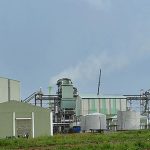(Kampala) – Parliament has approved a series of bills that will merge the Cotton Development Organisation (CDO), Dairy Development Authority (DDA), and National Agricultural Advisory Services (NAADS) into the Ministry of Agriculture, Animal Industry and Fisheries (MAAIF). The merger is intended to improve efficiency, streamline operations, and reduce service duplication in the agricultural sector.
The decision to pass these bills is part of the government’s ongoing rationalization agenda, aimed at restructuring public agencies for better resource management. The Cotton Development Organisation (Amendment) Bill, 2024, was one of the key pieces of legislation passed on Tuesday, 22 October 2024.
Hon. Linda Auma, Chairperson of the Committee on Agriculture, Animal Industry and Fisheries, presented the majority report in support of the merger. She argued that bringing CDO’s functions under MAAIF would reduce administrative costs, improve coordination, and enhance service delivery to farmers. “This integration will ensure better use of public resources while enhancing service delivery to farmers,” Auma said.
However, not all members agreed. The minority report, presented by Hon. Asinansi Nakato, Hoima City Woman Representative, voiced concerns about the potential negative effects on the cotton industry. Nakato argued that folding CDO into the ministry could undermine the progress the organization has made in reviving Uganda’s cotton sector. “Mainstreaming CDO into the ministry will compromise the very foundation that has kept our cotton industry afloat,” Nakato warned, adding that cotton, a key export crop, might lose focus if managed under the broader functions of MAAIF.
The Minister of Agriculture, Animal Industry, and Fisheries, Hon. Frank Tumwebaze, defended the merger, emphasizing that it would remove duplication and unify efforts across the sector. He assured Parliament that all technical staff from CDO willing to stay would be absorbed into the ministry, ensuring that expertise is not lost. “The duplication will be removed, and the country will benefit from a unified strategy,” Tumwebaze explained.
The Dairy Industry (Amendment) Bill, 2024, which merges the Dairy Development Authority (DDA) into MAAIF, was also passed. While the DDA has been credited with boosting dairy production and market access, legislators argued that consolidating its functions under MAAIF would increase efficiency. Hon. Auma emphasized that the gains made by the DDA, particularly in quality assurance and international accreditation, would be protected under the ministry’s oversight.
Despite the general support, some legislators expressed concerns about the potential loss of regulatory achievements in the dairy sector. The committee’s report stressed the importance of maintaining the National Dairy Analytical Laboratory’s accreditation processes even after the merger. Hon. Wilson Kajwengye (NRM, Nyabushozi County) pointed out that dairy farmers are struggling with low prices despite the DDA’s efforts, arguing that consolidating resources under MAAIF could address such challenges.
The National Agricultural Advisory Services (Amendment) Bill, 2024, which dissolves NAADS and transfers its functions to MAAIF’s Directorate of Extension, was the final bill approved. Minister Tumwebaze explained that the goal of dissolving NAADS is to eliminate overlapping roles between NAADS coordinators and agricultural extension officers. “This will give us a single-spine extension policy, ensuring better service delivery at the grassroots,” Tumwebaze said.
State Minister for Animal Industry, Hon. Bright Rwamirama, assured that NAADS’ key services would still be delivered through MAAIF’s extension officers, who will be assigned based on the needs of the community. “We will continue to provide services at the sub-county level without duplication,” he noted.
The mergers are part of a broader government strategy to rationalize public agencies, cut operational costs, and improve agricultural services. Although some concerns remain about the risks involved, the integration of CDO, DDA, and NAADS into MAAIF is seen as a necessary step to build a more cohesive and efficient agricultural framework in Uganda.




















